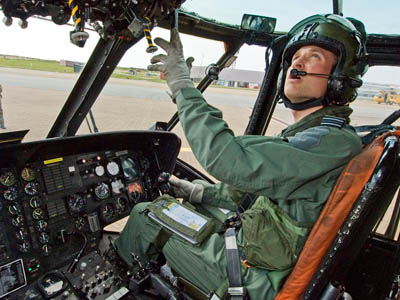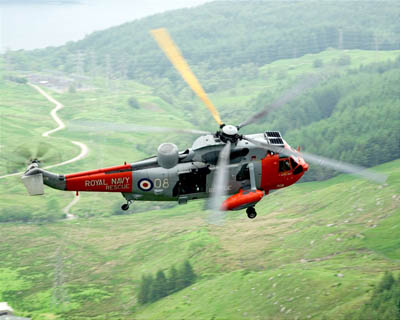The debate over the future of Britain’s search and rescue helicopters was revived after it emerged Prince William may have intervened in the controversy.
The helicopters, which at present are operated by the RAF, Royal Navy and the Coastguard and Maritime Agency, take part in numerous mountain rescues throughout the UK’s uplands.
Prince William is a serving Sea King pilot based at RAF Valley on Anglesey and is patron of Mountain Rescue England & Wales.
But David Cameron let slip in Prime Minister’s Questions that he had been lobbied on the subject.
Replying to Strangford Democratic Unionist MP Jim Shannon’s plea for the retention of Coastguard helicopter cover for search and rescue in Northern Ireland, the Prime Minister replied: “I have been lobbied extensively about air-sea rescue, including by people from all walks of life, if I may put it that way.”
The comment was seen by many as referring to the fact that Prince William and the premier spent time together in Zurich as part of England’s ill fated bid to host the 2018 World Cup, speculation the Daily Telegraph said was confirmed by Downing Street staff.
Mr Cameron told Mr Shannon: “I totally understand the need for good air-sea rescue. I think what matters is not necessarily who carries out the service, but whether they are fully qualified, whether it is a good service and whether it is value for money. That is what we have to make sure happens, as in other areas.”
An announcement on the privatisation of search and rescue helicopters had been expected in December but was not forthcoming. One of the first acts of the coalition Government was to suspend the £7bn scheme for the Soteria Consortium, which includes Royal Bank of Scotland, French company Thales, Canadian Helicopter Corporation and Sikorsky, to take over the service, using Sikorsky S92A craft similar to ones used by the Coastguard in Scotland. The plans had been agreed by the previous Labour Government.
However, the scheme would see fewer military pilots used.
After the Zurich meeting, the Department of Transport postponed the announcement about the planned privatisation, saying it had become aware of a ‘possible issue’ in connection with its bid.
About 90 per cent of the current missions flown by RAF and Royal Navy search and rescue helicopters in the UK are civilian rescues. The helicopters are often called by Britain’s volunteer mountain rescue teams to help evacuate seriously injured climbers and walkers from incidents in the uplands.
Further problems could be caused by the coalition Government’s plans to close RAF Kinloss in Moray, which houses the Aeronautical Rescue Co-ordination Centre, and the possible closure of nearby RAF Lossiemouth, which houses the RAF Sea Kings covering much of the eastern Highlands.
The Ramblers called for assurances on the future of search and rescue late last year. Chief executive Tom Franklin said: “Today we have a superb search and rescue service in the UK which is the envy of many other countries.
“Close cooperation between military, police and civilian interests is at the heart of this service and relies on the massive contribution of volunteer time and effort through our civilian mountain rescue teams.
“This is the Big Society working at its best, as it has done for decades.”
He also pointed out that the loss of the Moray airbases put at risk the future of the ground-based RAF mountain rescue teams that work alongside volunteer teams in the Highlands.
“These RAF teams have been of enormous importance over the years in the contribution they make to the overall mountain rescue provision, working alongside the civilian teams.
“Their expertise and availability cannot be replaced by extra civilian provision. There simply would not be enough volunteers available to replace what is delivered by the RAF and could lead to the perverse consequence of the present effective and efficient operations being replaced by a mountain rescue service that was paid for to a greater extent by the public purse.”


peter mack
17 December 2011Since when has a proud national life saving duty equated to a take it or leave it occupation? My old man who served in N.Africa W.W.2 would turn in his grave----dont this lot remember the tune CANT BUY ME LOVE?